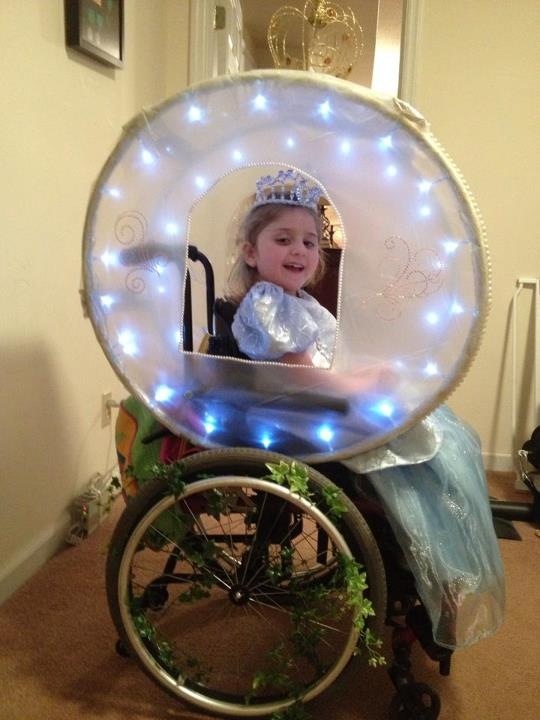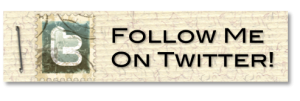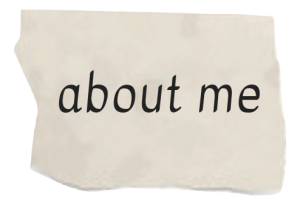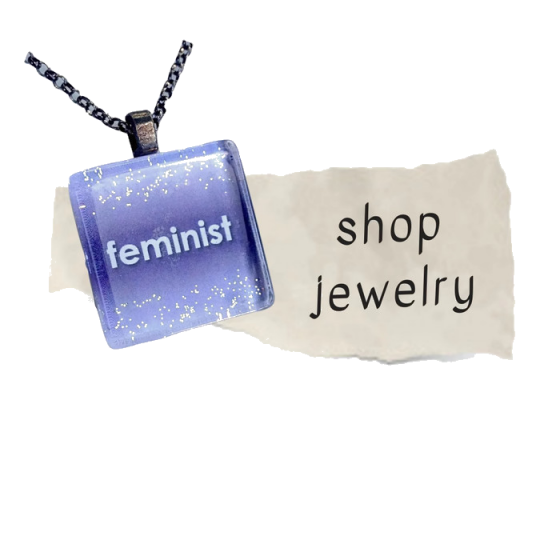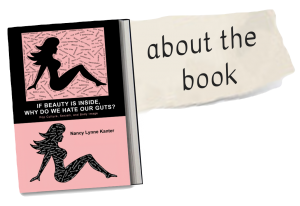 Body, it's me. Can we talk? It’s March 20th and spring has finally arrived. As spring fills the air, there are some things we can always count on-- flowers will bloom, birds will gleefully chirp, temperatures will rise, and the media will unleash its seasonal campaign begging me, pressuring me, DEMANDING me to declare war against you.
Magazines and commercials will be asking us if we’re “beach body ready.” They'll say it’s time to “melt away those love handles” and “get rid of those extra pounds.” Body, last time I checked, we have fat covering our bones, and extra cushioning around our tummy and hips-- never has this fat posed a threat to us or to anyone else for that matter, so why must it be so urgently destroyed? Why should we have to make ourselves smaller and smaller to satisfy an ideal of beauty that we never agreed to in the first place?
Advertisers will try to sell us products that will "eliminate unsightly stretch marks.” Body, last time I checked, we have stretch marks--winding, twisting, squiggly pale marks on our thighs, hips, breasts, butt, you get the picture! Despite what the media tells us, you and I know that these stretch marks signify our growth-- from a little girl into a woman. These stretch marks formed because I nourished you, fed you, allowed you to develop fully over the years. Why should we feel compelled to erase the very marks that make us human? Magazines incessantly mock celebrities who have cellulite. Body, last time I checked, we have cellulite. The generations of women before us had cellulite too-- it’s in our genes. My thighs have ripples and dimples, just like my mother’s thighs, and my grandmother’s thighs, and my great-grandmother’s thighs. When I look at our legs, the cellulite isn’t what strikes me. What strikes me is how our legs supported us and allowed us to stand tall throughout life’s most difficult challenges. Our legs, they did not buckle in times of hardship, heartbreak, and grief, no-- our legs kept us moving through life when it seemed impossible. Though we may receive ongoing harassment about the cellulite on our legs, our legs will continue to stand tall and stand up to unrealistic standards of beauty over and over again.
We see commercials for laser hair removal, waxing, and shaving products. Body, this is no secret-- we have hair. On our arms, on our legs, on our face, etc. Remember those boys who made fun of us in middle school for having hair on our bodies? Oh, the shame and insecurities we felt back then. Our dark hair carries our history and our heritage-- that is nothing to be ashamed of. Those boys, I hope they’ve matured over the years. I hope they don't humiliate their mothers, their sisters, and their daughters who grow hair on their faces and bodies. I hope they have learned to love and accept women as human beings and NOT Barbie dolls.
Body, the internet keeps telling us we need to “cleanse and detox.” If there is one thing we need to cleanse and detox, I think it is our mind. We need a 24-7 detox from the poisonous messages that have been bombarding us since we were young. Perhaps the weight we've needed to lose all along is the weight of society’s judgments surrounding our bodies and our worth.
Body, I want to thank you for never giving up on me. You’ve been there for me when I was not always kind to you. You don’t hold a grudge for all those years I hated you, starved you, overworked you, and treated you poorly. You’ve loved me unconditionally from the second we met, and it’s about time I returned that love. I want to cherish every moment we spend together-- basking in our imperfection, existing exactly as we are, and making no apologies. Happy Spring!
About the Author:
Brooke Scheinberg is a licensed social worker currently providing clinical therapy services at a substance abuse clinic in New Haven, CT. A graduate of the University of Maryland School of Social Work, Brooke hopes to use her personal and professional experience to help and inspire others on their journey to self-love.
Body, it's me. Can we talk? It’s March 20th and spring has finally arrived. As spring fills the air, there are some things we can always count on-- flowers will bloom, birds will gleefully chirp, temperatures will rise, and the media will unleash its seasonal campaign begging me, pressuring me, DEMANDING me to declare war against you.
Magazines and commercials will be asking us if we’re “beach body ready.” They'll say it’s time to “melt away those love handles” and “get rid of those extra pounds.” Body, last time I checked, we have fat covering our bones, and extra cushioning around our tummy and hips-- never has this fat posed a threat to us or to anyone else for that matter, so why must it be so urgently destroyed? Why should we have to make ourselves smaller and smaller to satisfy an ideal of beauty that we never agreed to in the first place?
Advertisers will try to sell us products that will "eliminate unsightly stretch marks.” Body, last time I checked, we have stretch marks--winding, twisting, squiggly pale marks on our thighs, hips, breasts, butt, you get the picture! Despite what the media tells us, you and I know that these stretch marks signify our growth-- from a little girl into a woman. These stretch marks formed because I nourished you, fed you, allowed you to develop fully over the years. Why should we feel compelled to erase the very marks that make us human? Magazines incessantly mock celebrities who have cellulite. Body, last time I checked, we have cellulite. The generations of women before us had cellulite too-- it’s in our genes. My thighs have ripples and dimples, just like my mother’s thighs, and my grandmother’s thighs, and my great-grandmother’s thighs. When I look at our legs, the cellulite isn’t what strikes me. What strikes me is how our legs supported us and allowed us to stand tall throughout life’s most difficult challenges. Our legs, they did not buckle in times of hardship, heartbreak, and grief, no-- our legs kept us moving through life when it seemed impossible. Though we may receive ongoing harassment about the cellulite on our legs, our legs will continue to stand tall and stand up to unrealistic standards of beauty over and over again.
We see commercials for laser hair removal, waxing, and shaving products. Body, this is no secret-- we have hair. On our arms, on our legs, on our face, etc. Remember those boys who made fun of us in middle school for having hair on our bodies? Oh, the shame and insecurities we felt back then. Our dark hair carries our history and our heritage-- that is nothing to be ashamed of. Those boys, I hope they’ve matured over the years. I hope they don't humiliate their mothers, their sisters, and their daughters who grow hair on their faces and bodies. I hope they have learned to love and accept women as human beings and NOT Barbie dolls.
Body, the internet keeps telling us we need to “cleanse and detox.” If there is one thing we need to cleanse and detox, I think it is our mind. We need a 24-7 detox from the poisonous messages that have been bombarding us since we were young. Perhaps the weight we've needed to lose all along is the weight of society’s judgments surrounding our bodies and our worth.
Body, I want to thank you for never giving up on me. You’ve been there for me when I was not always kind to you. You don’t hold a grudge for all those years I hated you, starved you, overworked you, and treated you poorly. You’ve loved me unconditionally from the second we met, and it’s about time I returned that love. I want to cherish every moment we spend together-- basking in our imperfection, existing exactly as we are, and making no apologies. Happy Spring!
About the Author:
Brooke Scheinberg is a licensed social worker currently providing clinical therapy services at a substance abuse clinic in New Haven, CT. A graduate of the University of Maryland School of Social Work, Brooke hopes to use her personal and professional experience to help and inspire others on their journey to self-love.
Posts in category Body Image
An Open Letter to My Body on the First Day of Spring
 Body, it's me. Can we talk? It’s March 20th and spring has finally arrived. As spring fills the air, there are some things we can always count on-- flowers will bloom, birds will gleefully chirp, temperatures will rise, and the media will unleash its seasonal campaign begging me, pressuring me, DEMANDING me to declare war against you.
Magazines and commercials will be asking us if we’re “beach body ready.” They'll say it’s time to “melt away those love handles” and “get rid of those extra pounds.” Body, last time I checked, we have fat covering our bones, and extra cushioning around our tummy and hips-- never has this fat posed a threat to us or to anyone else for that matter, so why must it be so urgently destroyed? Why should we have to make ourselves smaller and smaller to satisfy an ideal of beauty that we never agreed to in the first place?
Advertisers will try to sell us products that will "eliminate unsightly stretch marks.” Body, last time I checked, we have stretch marks--winding, twisting, squiggly pale marks on our thighs, hips, breasts, butt, you get the picture! Despite what the media tells us, you and I know that these stretch marks signify our growth-- from a little girl into a woman. These stretch marks formed because I nourished you, fed you, allowed you to develop fully over the years. Why should we feel compelled to erase the very marks that make us human? Magazines incessantly mock celebrities who have cellulite. Body, last time I checked, we have cellulite. The generations of women before us had cellulite too-- it’s in our genes. My thighs have ripples and dimples, just like my mother’s thighs, and my grandmother’s thighs, and my great-grandmother’s thighs. When I look at our legs, the cellulite isn’t what strikes me. What strikes me is how our legs supported us and allowed us to stand tall throughout life’s most difficult challenges. Our legs, they did not buckle in times of hardship, heartbreak, and grief, no-- our legs kept us moving through life when it seemed impossible. Though we may receive ongoing harassment about the cellulite on our legs, our legs will continue to stand tall and stand up to unrealistic standards of beauty over and over again.
We see commercials for laser hair removal, waxing, and shaving products. Body, this is no secret-- we have hair. On our arms, on our legs, on our face, etc. Remember those boys who made fun of us in middle school for having hair on our bodies? Oh, the shame and insecurities we felt back then. Our dark hair carries our history and our heritage-- that is nothing to be ashamed of. Those boys, I hope they’ve matured over the years. I hope they don't humiliate their mothers, their sisters, and their daughters who grow hair on their faces and bodies. I hope they have learned to love and accept women as human beings and NOT Barbie dolls.
Body, the internet keeps telling us we need to “cleanse and detox.” If there is one thing we need to cleanse and detox, I think it is our mind. We need a 24-7 detox from the poisonous messages that have been bombarding us since we were young. Perhaps the weight we've needed to lose all along is the weight of society’s judgments surrounding our bodies and our worth.
Body, I want to thank you for never giving up on me. You’ve been there for me when I was not always kind to you. You don’t hold a grudge for all those years I hated you, starved you, overworked you, and treated you poorly. You’ve loved me unconditionally from the second we met, and it’s about time I returned that love. I want to cherish every moment we spend together-- basking in our imperfection, existing exactly as we are, and making no apologies. Happy Spring!
About the Author:
Brooke Scheinberg is a licensed social worker currently providing clinical therapy services at a substance abuse clinic in New Haven, CT. A graduate of the University of Maryland School of Social Work, Brooke hopes to use her personal and professional experience to help and inspire others on their journey to self-love.
Body, it's me. Can we talk? It’s March 20th and spring has finally arrived. As spring fills the air, there are some things we can always count on-- flowers will bloom, birds will gleefully chirp, temperatures will rise, and the media will unleash its seasonal campaign begging me, pressuring me, DEMANDING me to declare war against you.
Magazines and commercials will be asking us if we’re “beach body ready.” They'll say it’s time to “melt away those love handles” and “get rid of those extra pounds.” Body, last time I checked, we have fat covering our bones, and extra cushioning around our tummy and hips-- never has this fat posed a threat to us or to anyone else for that matter, so why must it be so urgently destroyed? Why should we have to make ourselves smaller and smaller to satisfy an ideal of beauty that we never agreed to in the first place?
Advertisers will try to sell us products that will "eliminate unsightly stretch marks.” Body, last time I checked, we have stretch marks--winding, twisting, squiggly pale marks on our thighs, hips, breasts, butt, you get the picture! Despite what the media tells us, you and I know that these stretch marks signify our growth-- from a little girl into a woman. These stretch marks formed because I nourished you, fed you, allowed you to develop fully over the years. Why should we feel compelled to erase the very marks that make us human? Magazines incessantly mock celebrities who have cellulite. Body, last time I checked, we have cellulite. The generations of women before us had cellulite too-- it’s in our genes. My thighs have ripples and dimples, just like my mother’s thighs, and my grandmother’s thighs, and my great-grandmother’s thighs. When I look at our legs, the cellulite isn’t what strikes me. What strikes me is how our legs supported us and allowed us to stand tall throughout life’s most difficult challenges. Our legs, they did not buckle in times of hardship, heartbreak, and grief, no-- our legs kept us moving through life when it seemed impossible. Though we may receive ongoing harassment about the cellulite on our legs, our legs will continue to stand tall and stand up to unrealistic standards of beauty over and over again.
We see commercials for laser hair removal, waxing, and shaving products. Body, this is no secret-- we have hair. On our arms, on our legs, on our face, etc. Remember those boys who made fun of us in middle school for having hair on our bodies? Oh, the shame and insecurities we felt back then. Our dark hair carries our history and our heritage-- that is nothing to be ashamed of. Those boys, I hope they’ve matured over the years. I hope they don't humiliate their mothers, their sisters, and their daughters who grow hair on their faces and bodies. I hope they have learned to love and accept women as human beings and NOT Barbie dolls.
Body, the internet keeps telling us we need to “cleanse and detox.” If there is one thing we need to cleanse and detox, I think it is our mind. We need a 24-7 detox from the poisonous messages that have been bombarding us since we were young. Perhaps the weight we've needed to lose all along is the weight of society’s judgments surrounding our bodies and our worth.
Body, I want to thank you for never giving up on me. You’ve been there for me when I was not always kind to you. You don’t hold a grudge for all those years I hated you, starved you, overworked you, and treated you poorly. You’ve loved me unconditionally from the second we met, and it’s about time I returned that love. I want to cherish every moment we spend together-- basking in our imperfection, existing exactly as we are, and making no apologies. Happy Spring!
About the Author:
Brooke Scheinberg is a licensed social worker currently providing clinical therapy services at a substance abuse clinic in New Haven, CT. A graduate of the University of Maryland School of Social Work, Brooke hopes to use her personal and professional experience to help and inspire others on their journey to self-love.
In 2090 …
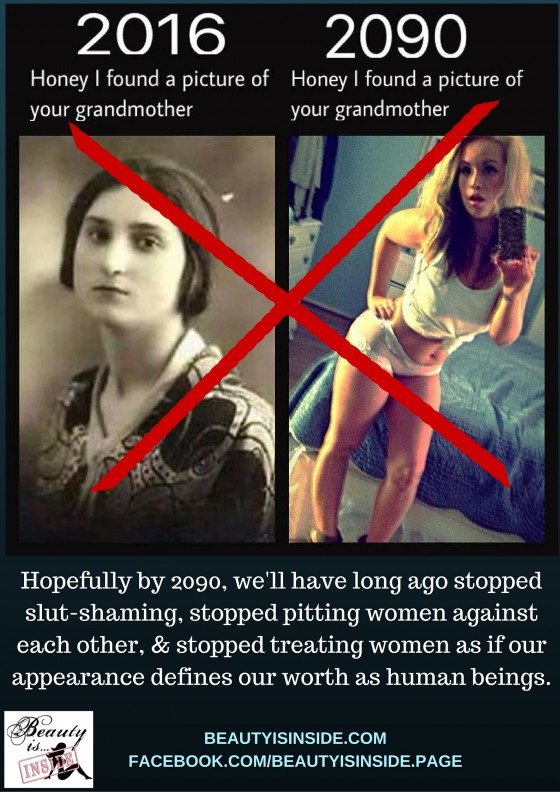
Halloween IS Scary!
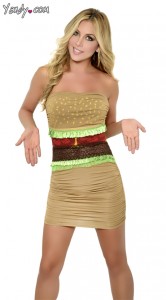
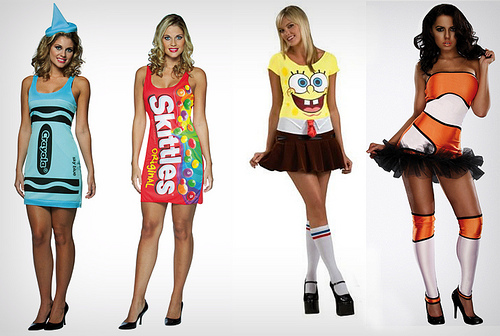 But it's not all just harmless fun. Even child characters in fairy tales have been made into sexed-up costumes for women, e.g., Sexy Little Red Riding Hood, Sexy Goldilocks, and Sexy Alice in Wonderland. (See more examples here).
But it's not all just harmless fun. Even child characters in fairy tales have been made into sexed-up costumes for women, e.g., Sexy Little Red Riding Hood, Sexy Goldilocks, and Sexy Alice in Wonderland. (See more examples here).
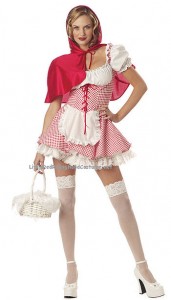
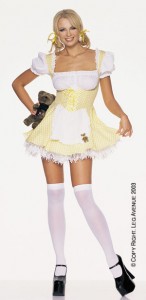
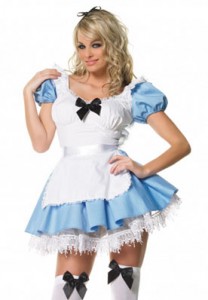 In addition to fairy tale characters, here are a few other ways for women to dress up as sexy little girls -- the Sexy Girl Scout, the Sexy Schoolgirl, and the Sexy Baby (WTF is wrong with people?!):
In addition to fairy tale characters, here are a few other ways for women to dress up as sexy little girls -- the Sexy Girl Scout, the Sexy Schoolgirl, and the Sexy Baby (WTF is wrong with people?!):
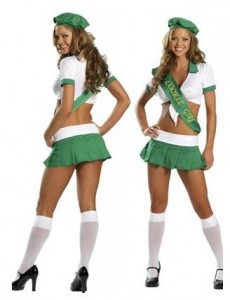

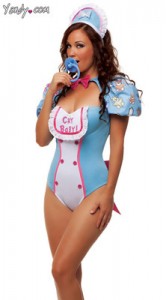 What's so troubling about these costumes is that:
What's so troubling about these costumes is that:
"... [M]any of the 'sexy' costumes are highly sexualized versions of characters who are supposed to be little girls ... The fact that many women dress up as sexy little girls points to both the sexualization of female children and the infantilization of adult women."The sexualization of girls teaches them early on that their value lies in their appearance, their bodies, and their sexuality. The American Psychological Association found that sexualization damages girls' feelings of self-worth, impairs their mental functioning, and contributes to eating disorders. In other words, it fucks girls up. The infantilization of adult women reinforces attitudes that women should be treated as naive, dependent, and incapable of making intelligent decisions or holding leadership roles. In other words, it fucks women over. Another disturbing trend in sexy costumes is linking sexuality with violence. Here are some creepy sexy costumes, such as female versions of horror movie serial killers -- Sexy Leatherface (Texas Chainsaw Massacre), Sexy Jason (Friday the 13th), and Sexy Michael Myers (Halloween). I guess the Sexy Body Bag (seriously, who comes up with this shit?!) fits in here as well :/ :
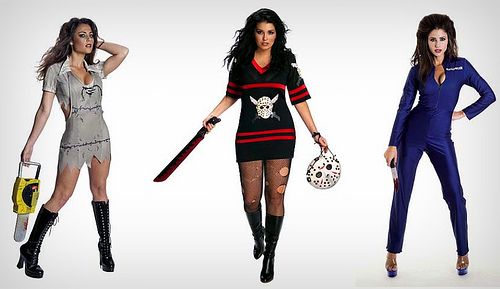
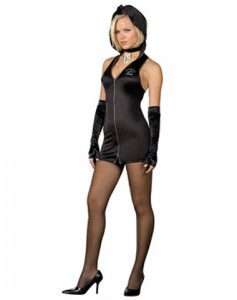 Of course, many Halloween costumes are intended to be frightening or gory, but turning a male horror movie killer that often targets scantily-clad female victims into a scantily-clad female horror movie killer has some interesting connotations. Horror movie killers tend to murder (punish) the sexually open "whores" early on, while the good girl "virgins" often escape (reward). Underlying the sexy female killer is a misogynistic fear of female sexuality and power -- it threatens conservative social attitudes about women owning our sexuality and our bodies. It also sparks our own conflicted feelings about sexuality or our insecurities about other women being competition or threats. Since all of these fears are uncomfortable, they must be buried or "killed".
Clearly, there are lots of "sexy" costumes for women, but those for men are a bit different. This Tumblr page has tons of examples of the same costume idea, but different versions for him and her. The differences are quite striking when you look at them side-by-side. His costumes are typically silly, while hers are always sexy. Here are his-and-hers versions of Tigger, Skunk, Firefighter, and Astronaut:
Of course, many Halloween costumes are intended to be frightening or gory, but turning a male horror movie killer that often targets scantily-clad female victims into a scantily-clad female horror movie killer has some interesting connotations. Horror movie killers tend to murder (punish) the sexually open "whores" early on, while the good girl "virgins" often escape (reward). Underlying the sexy female killer is a misogynistic fear of female sexuality and power -- it threatens conservative social attitudes about women owning our sexuality and our bodies. It also sparks our own conflicted feelings about sexuality or our insecurities about other women being competition or threats. Since all of these fears are uncomfortable, they must be buried or "killed".
Clearly, there are lots of "sexy" costumes for women, but those for men are a bit different. This Tumblr page has tons of examples of the same costume idea, but different versions for him and her. The differences are quite striking when you look at them side-by-side. His costumes are typically silly, while hers are always sexy. Here are his-and-hers versions of Tigger, Skunk, Firefighter, and Astronaut:
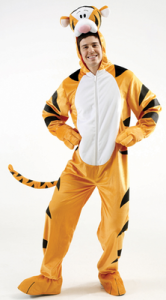
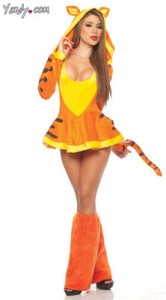
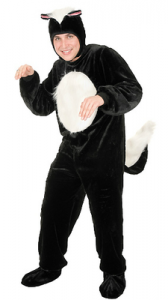
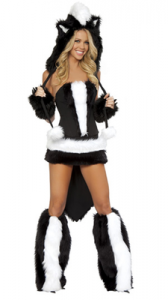
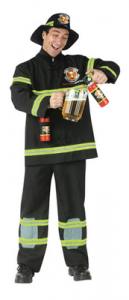
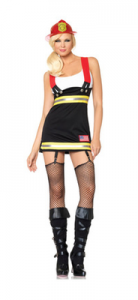
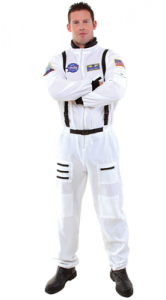
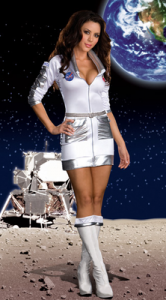 Making sexy versions of non-sexy characters like Tigger or Skunk invariably make sexiness cross into absurdity. However, sexing-up women's costumes of traditionally male careers, such as Firefighter or Astronaut, is another breed of animal. First, how could women realistically fight fires in a mini-skirt, garters, and fishnets or work in zero gravity in a mini-skirt and a top that low-cut? The answer is that they can't. And that speaks to deeper cultural beliefs about what women should and shouldn't do. Underlying sexy costumes such as these are sexist beliefs about a woman's place in society. Women taking on traditionally male roles is treated as absurd in itself, and the only way to make it okay is to sexualize it. This reinforces beliefs that we're primarily sexual objects and that we don't belong in certain careers or positions of power unless we're there to support men.
So far, we've only looked at sexy costumes for women, but men have a few choices as well: the Breathalizer (Get it? You "blow" into that straw between his legs), the One Night Stand, and the Pimp (Parents -- make sure to teach your sons early that women are "hos" to exploit for money and status!):
Making sexy versions of non-sexy characters like Tigger or Skunk invariably make sexiness cross into absurdity. However, sexing-up women's costumes of traditionally male careers, such as Firefighter or Astronaut, is another breed of animal. First, how could women realistically fight fires in a mini-skirt, garters, and fishnets or work in zero gravity in a mini-skirt and a top that low-cut? The answer is that they can't. And that speaks to deeper cultural beliefs about what women should and shouldn't do. Underlying sexy costumes such as these are sexist beliefs about a woman's place in society. Women taking on traditionally male roles is treated as absurd in itself, and the only way to make it okay is to sexualize it. This reinforces beliefs that we're primarily sexual objects and that we don't belong in certain careers or positions of power unless we're there to support men.
So far, we've only looked at sexy costumes for women, but men have a few choices as well: the Breathalizer (Get it? You "blow" into that straw between his legs), the One Night Stand, and the Pimp (Parents -- make sure to teach your sons early that women are "hos" to exploit for money and status!):
There's obviously a discrepancy between men's and women's sexy costumes: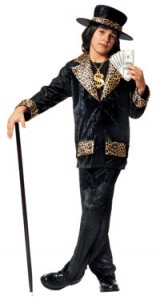
"... [W]hen women go sexy for Halloween, it usually means being seen as a sex object for others. When men go sexy, it means joking about how men should be sexually serviced, have access to one night stands, or being in charge of and profiting from women’s bodies. A different type of 'sexy' entirely."That's it. I'm skipping Halloween. These are all just too scary for me. :/
Marion Bartoli
No matter how accomplished or how talented a woman is, her appearance is always treated as relevant. Here's one example. BBC tennis commentator, John Inverdale, had this to say about France's Marion Bartoli who just won Wimbledon's women's singles title:
"I just wonder if her dad, because he has obviously been the most influential person in her life, did say to her when she was 12, 13, 14 maybe, 'listen, you are never going to be, you know, a looker. You are never going to be somebody like a [Maria] Sharapova, you're never going to be 5ft 11, you're never going to be somebody with long legs, so you have to compensate for that."
Bartoli took this powerful swing in response:
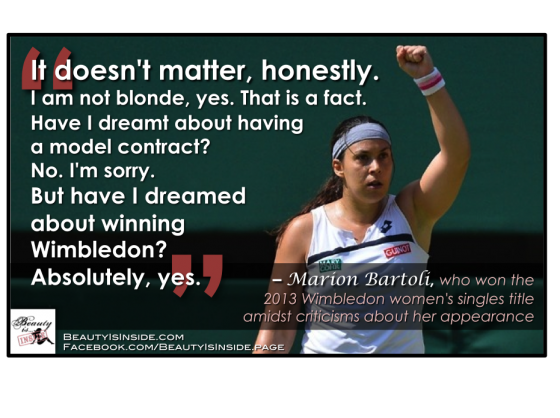
A Woman’s Declaration of Independence
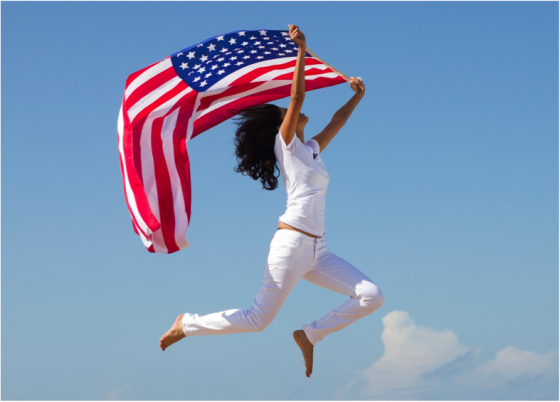
It’s time to declare independence, to separate ourselves from the bad habits, the stifling expectations, and the negative messages that no longer serve us (assuming they ever did).
It’s time to declare independence from media messages that tell us we’re ugly if we don’t look like the “flawless” images of celebrities on the screen and in the magazines. It’s time to stop buying into the manipulation and stop wasting time trying to chase an illusion that doesn’t even exist.
It’s time to declare independence from the belief that having the perfect body will make us worthy of love and respect. We’re already worthy of love and respect in the bodies we have now — no amount of weight loss or plastic surgery will increase our value.
It’s time to declare independence from dieting, from deprivation, from seeing food as the enemy. The American weight loss industry makes nearly $60 billion a year trying to convince us that we’re not good enough — if diets worked, would these companies be this profitable? It’s time to stop contributing to their false sense of hope.
It’s time to declare independence from body loathing, from looking at our bodies with disgust instead of love. It’s time to appreciate all of the amazing things they do for us — the jiggly arms that give great hugs, the flabby thighs that carry us through the park, the droopy breasts that fed a child, the wounded heart that still knows how to love, the exhausted brain that still manages to tell our lungs to breathe.
It’s time to declare independence from the oppressive labels of virgin or whore, straight or gay, feminine or masculine, and all the shades in between. Our number of sex partners do not define us. Our sexuality does not define us. Our gender identity does not define us. These traits can’t possibly define what kind of person we are or what’s in our hearts or our minds. Any attempt by others to claim otherwise is an attempt to control us, to police our behavior, and to shame us so that they don’t have to examine their own ignorance and fear.
It’s time to declare independence from the belief that women can bring sexual assault upon ourselves based on how provocatively we’re dressed, how flirty we act, or how drunk we get. The only ones responsible for rapists' behavior are rapists themselves. We have the right not to be blamed when others hurt us, and we have the right to feel safe in the world.
It’s time to declare independence from legislators who think the female body should be controlled by wealthy, middle-aged, white, Christian, conservative men. Our bodies belong to us — it’s time to declare our freedom to make our own decisions about them. Because if we cannot, then we are truly not equal citizens and this country is not as free it claims to be.
It’s time to declare independence from spending so much time, energy, and money trying to fit into someone else’s idea of who they think we should be. It’s time to put ourselves first, to focus on our own desires and do what we think is right. It’s time to trust our own instincts and make ourselves proud.
It’s time to declare independence from shame, from the belief that we’re not good enough, not beautiful enough, not thin enough, not smart enough, not clever enough, not sexy enough, not pure enough, not feminine enough, not worthy enough. It’s time to declare that we are already enough — that we are perfectly imperfect exactly as we are.
It’s time to declare our independence from any force that tries to hold us down — including those forces that limit us from within.
Not All I Am
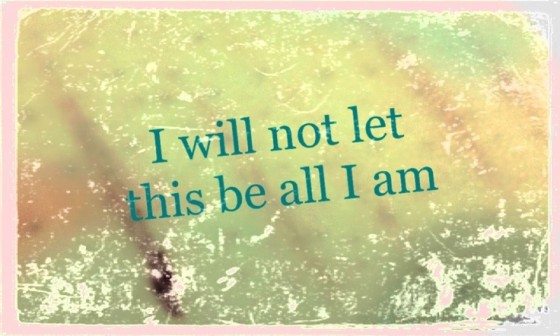
... nor will I allow others to treat me as if this is all I am:
- - a uterus
- - a collection of body parts
- - a vagina
- - a piece of ass
- - a pair of tits
- - a victim
- - public property
- - a virgin
- - a whore
- - a "before" photo
- - a body to legislate
- - a sexual object
If Men Posed Like Women Do
The media's treatment of women as sex objects is a ubiquitous fact of life. Advertisements, fashion spreads, comic books, movie posters -- nearly everywhere you look, women are shown in various stages of undress and posed in positions that make them look vulnerable, submissive, and sexually available. Conversely, men are depicted in positions of power or dominance, e.g., standing while a woman is reclining, being fully clothed while she's undressed, etc. These differences reinforce inequality between the sexes. Really, how powerful can a woman feel when she's half-naked and awkwardly contorted?
It's an interesting social experiment to see what happens when men are placed in these typical "female" poses.
The image below features two Vanity Fair covers: the top one with fully-clothed fashion designer Tom Ford, along with a nude Keira Knightley and Scarlett Johansson; and the bottom one is a Vanity Fair spoof of their own cover with a fully-clothed Paul Rudd and a pretend-nude Seth Rogen, Jonah Hill, and Jason Segel. In a separate issue, Vanity Fair also did a photo spread with comedians Kristen Wiig, Maya Rudolph, and Tina Fey, but posed them as typical sex objects. As Entertainment Weekly asks, would it be "... just as uproarious if some of those ladies vamped ironically in body stockings[?] ... Men being objectified is so silly as to be hilarious, but it’s better if funny women are also hot."
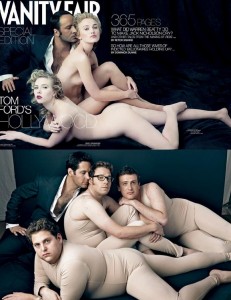
Here's a similar set of images showing nude female models huddled together and then one with the guys from the "Jackass" TV series and movies: 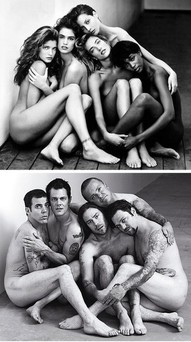
The following "men-ups" were created by photographer Rion Sabean to parody classic pin-up poses. According to Rion, his work focuses on "... gender and sexuality, wherein I attempt to bring light to the scrutiny and judgments of a society that defines human beings under rigid, antiquated terms."
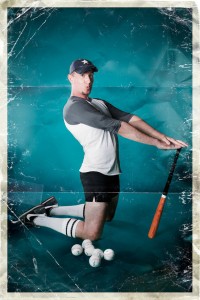
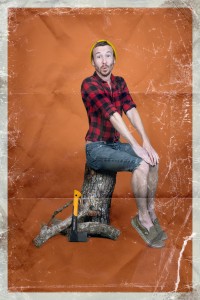
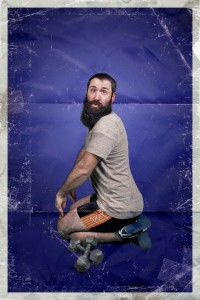
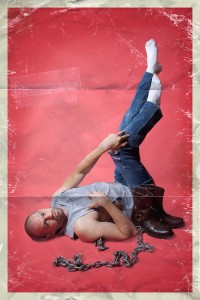
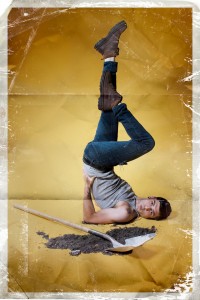
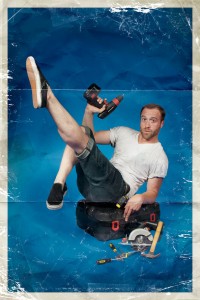
Artist Paul Richmond created a similar series from a gay male perspective. "I began the Cheesecake Boys series to rectify the inequalities in the underwear-flashing art genre known as pin-up," said Richmond.
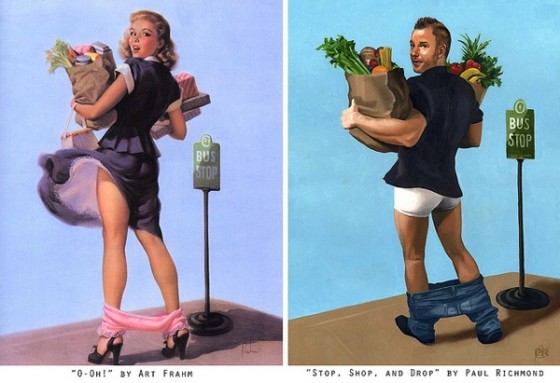
Here's Richmond explaining how he came up with the concept, along with more examples of his work:
Fantasy author Jim Hines parodied women's poses on the covers of fantasy novels by trying to replicate the poses himself. (He also did a series posing like the men on romance novel covers). "... [M]ost of these covers are supposed to convey strong, sexy heroines, but these are not poses that suggest strength. You can’t fight from these stances. I could barely even walk," said Hines.
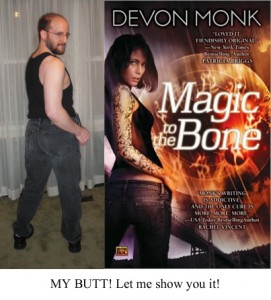
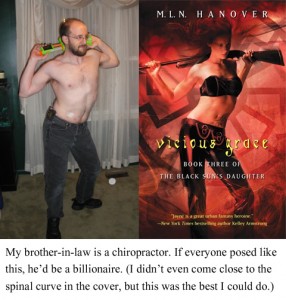
You Don’t Have To Be Pretty
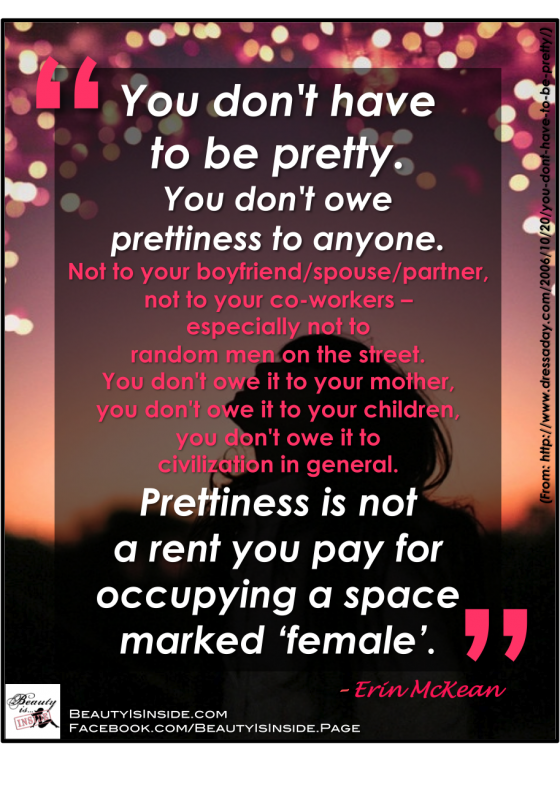 Read the full article here: A Dress A Day
Read the full article here: A Dress A Day
Pink

From the song "Perfect," written & performed by Pink.
Hallmark
This is a Hallmark birthday card for a young girl:
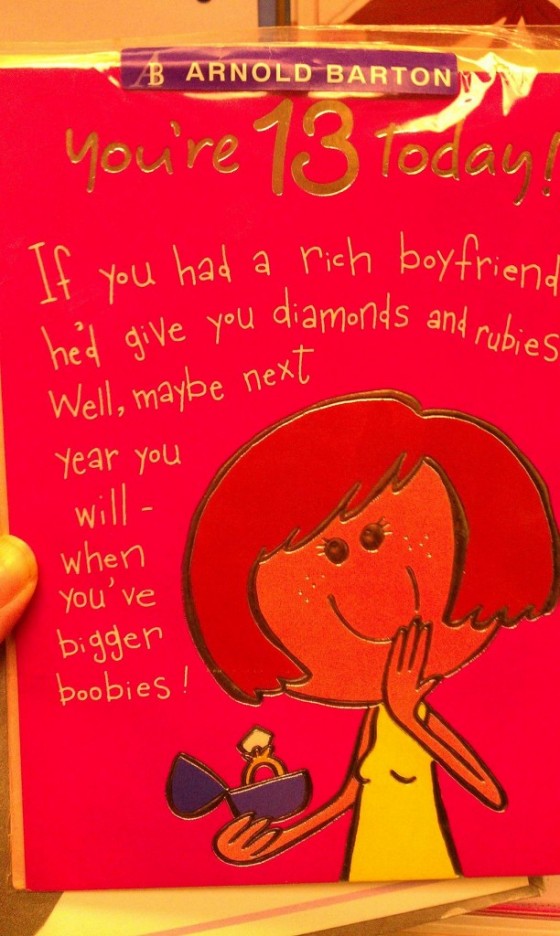
TEXT: "You're 13 today! If you had a rich boyfriend, he'd give you diamonds and rubies. Well, maybe next year you will - when you've bigger boobies!"
A woman in the UK posted a picture of it on Twitter. Over the next 6 hours, it was "re-tweeted, blogged about and posted across the Internet ... [until] Hallmark UK apologized for and pledged to stop selling the sexist card." The social pressure on Hallmark and their reaction is a great example of how speaking out about sexism matters!
Supermodels from 1994
Kathy Ireland, Elle MacPherson, and Rachel Hunter (L-R) appeared on the cover of the Sports Illustrated Swimsuit Issue in 1994. Today's thin ideal, popularity of plastic surgery, and extreme Photoshopping make 1994 seem like such a long time ago. And times have certainly changed.
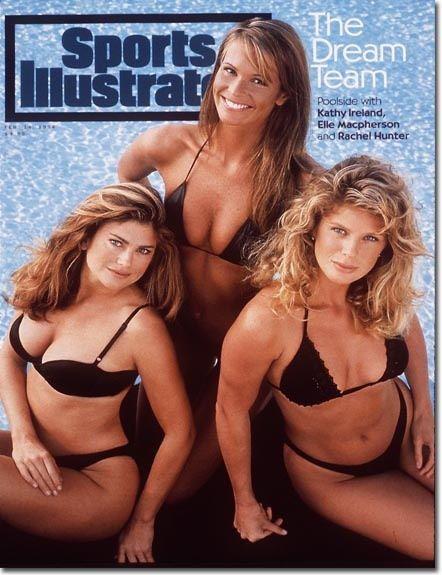
Face Your Shadows
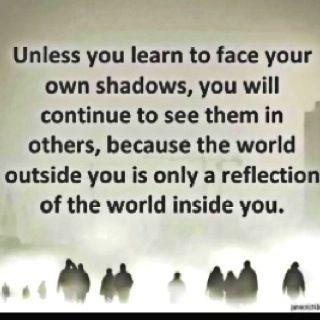 Face Your Shadows
Face Your Shadows

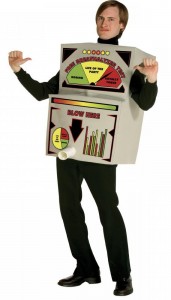
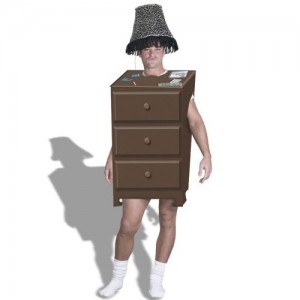
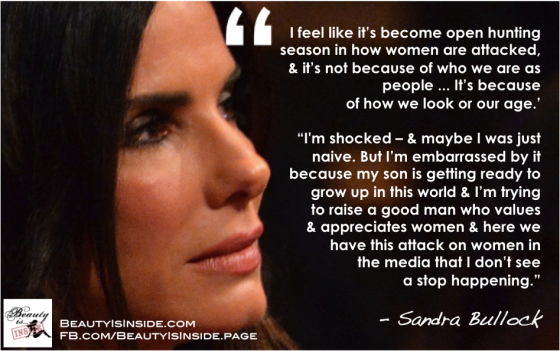
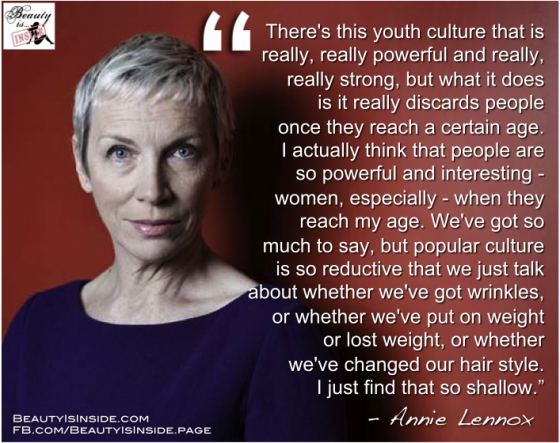
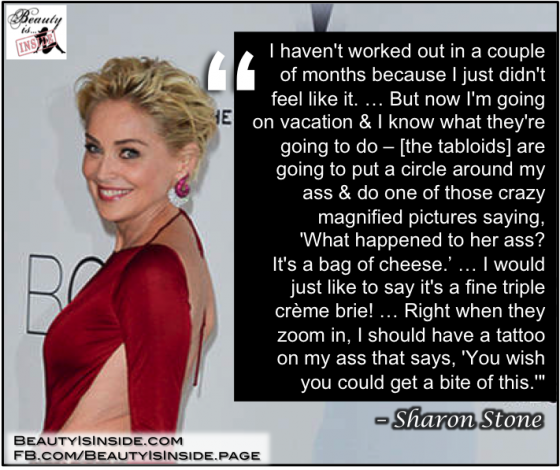
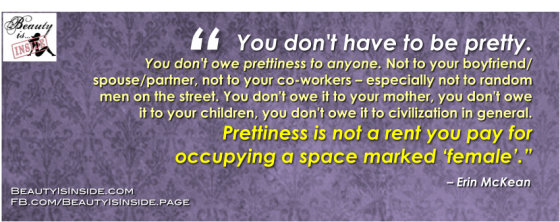
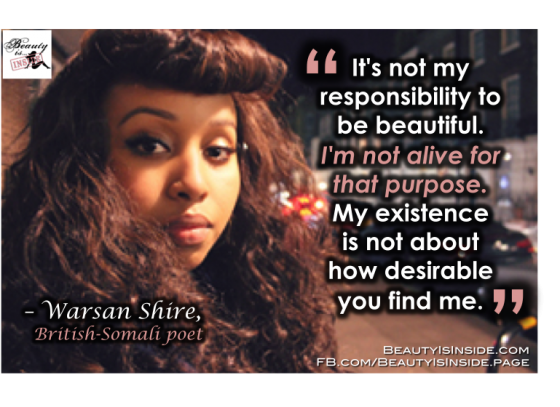
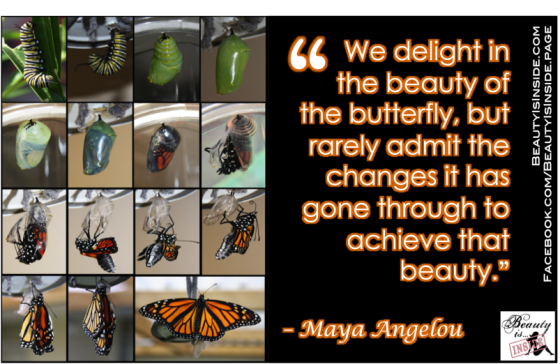
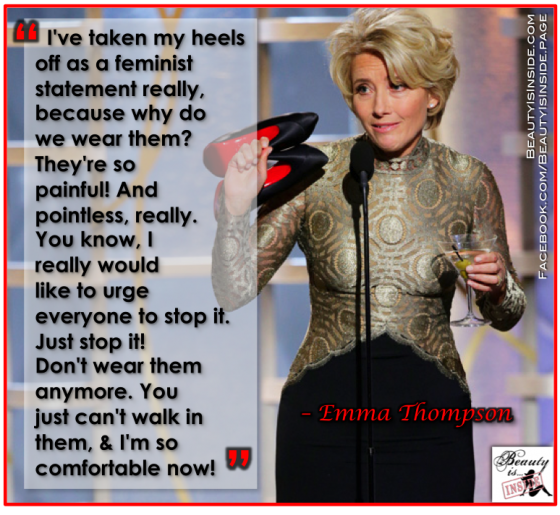

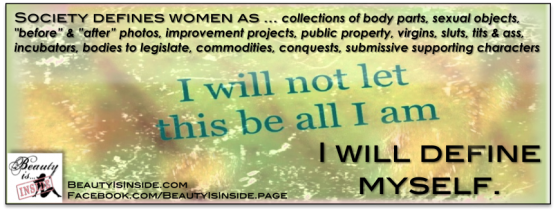
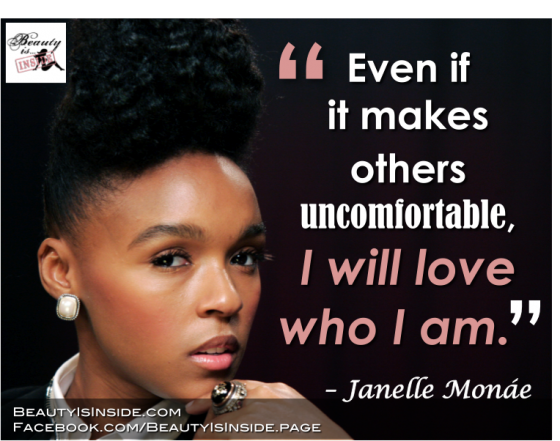
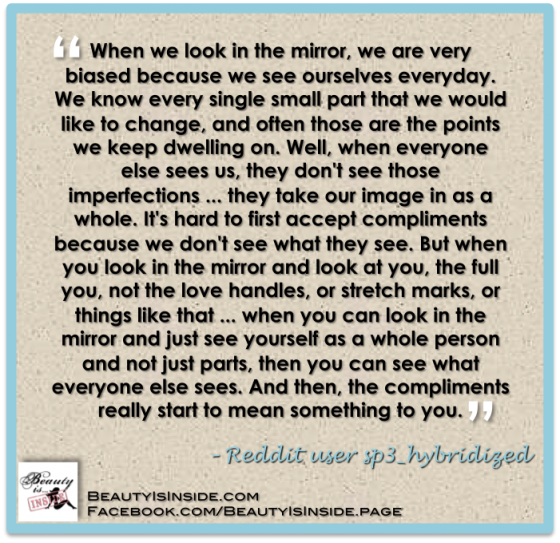
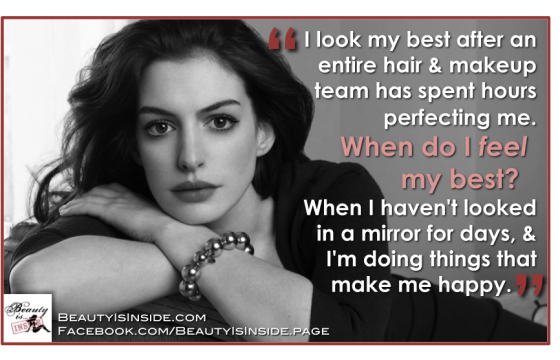
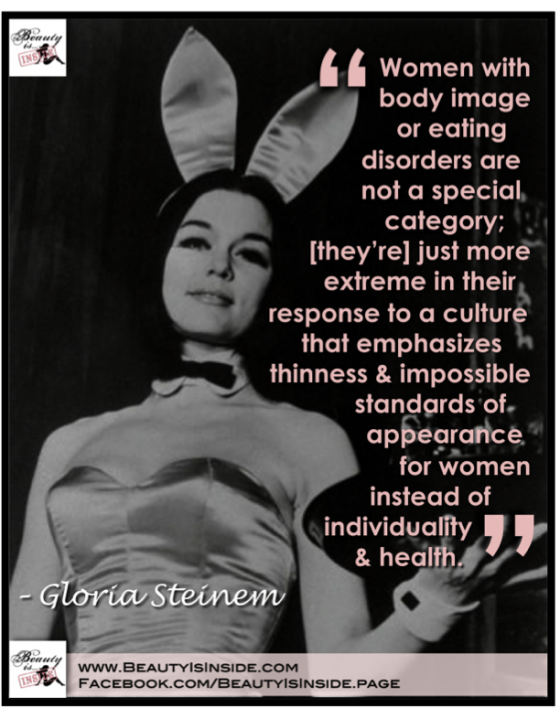
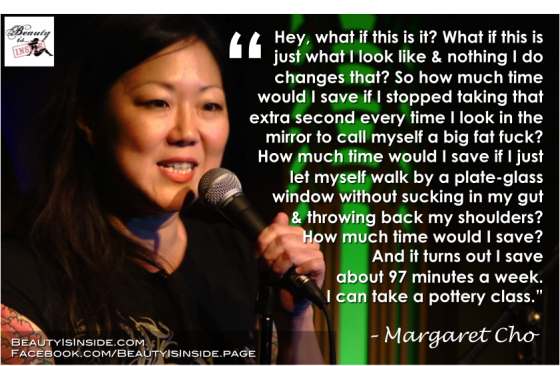
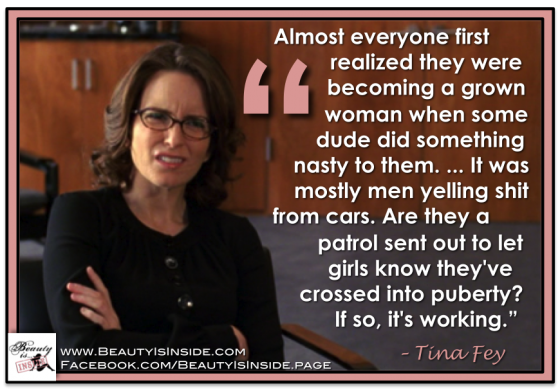
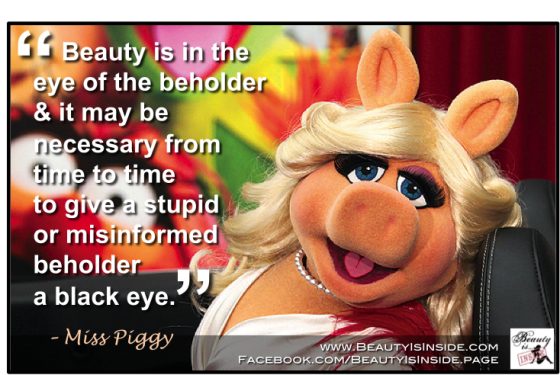
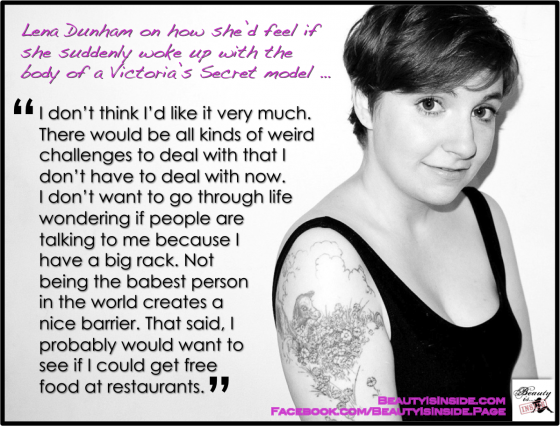
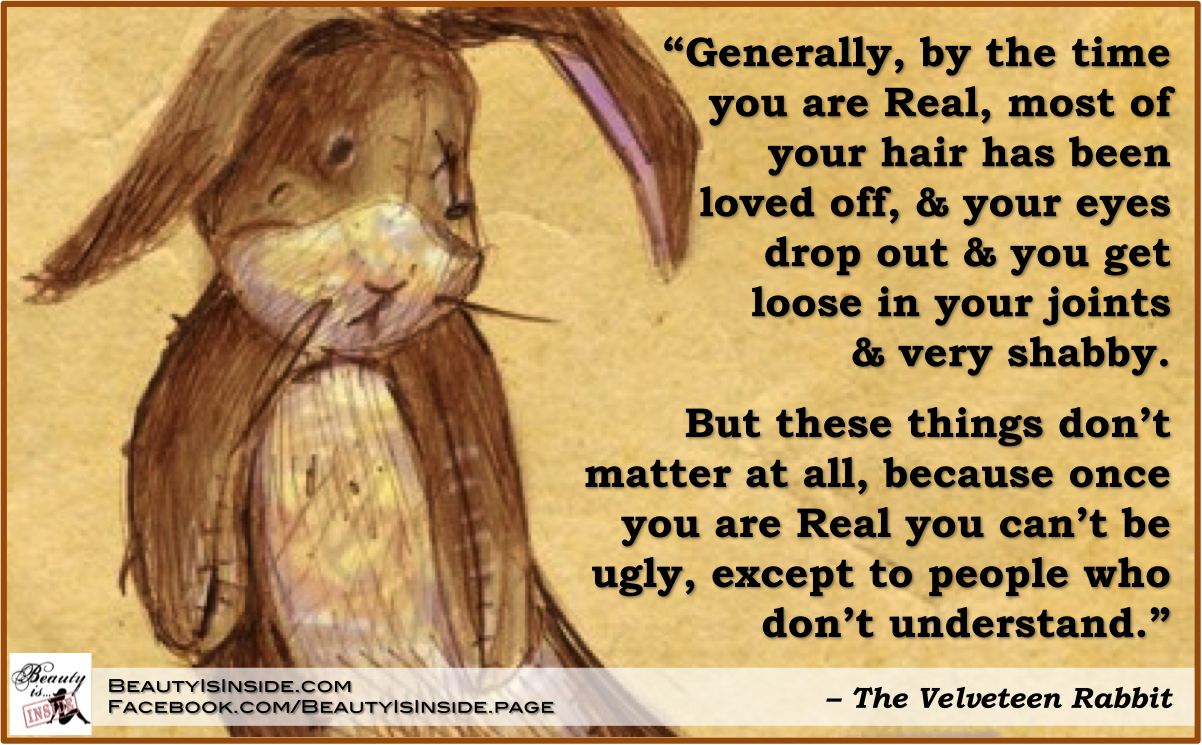
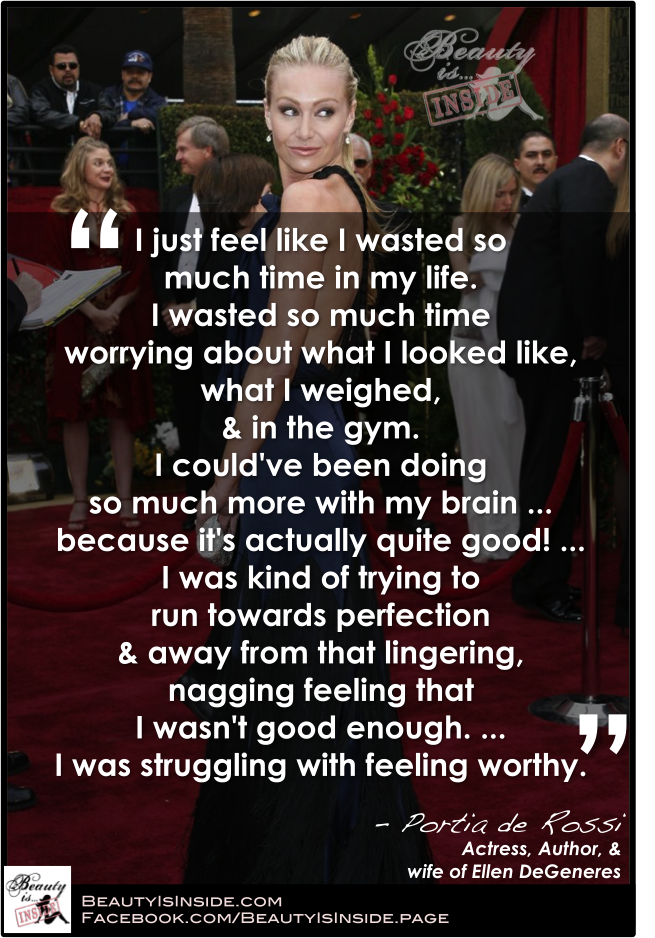
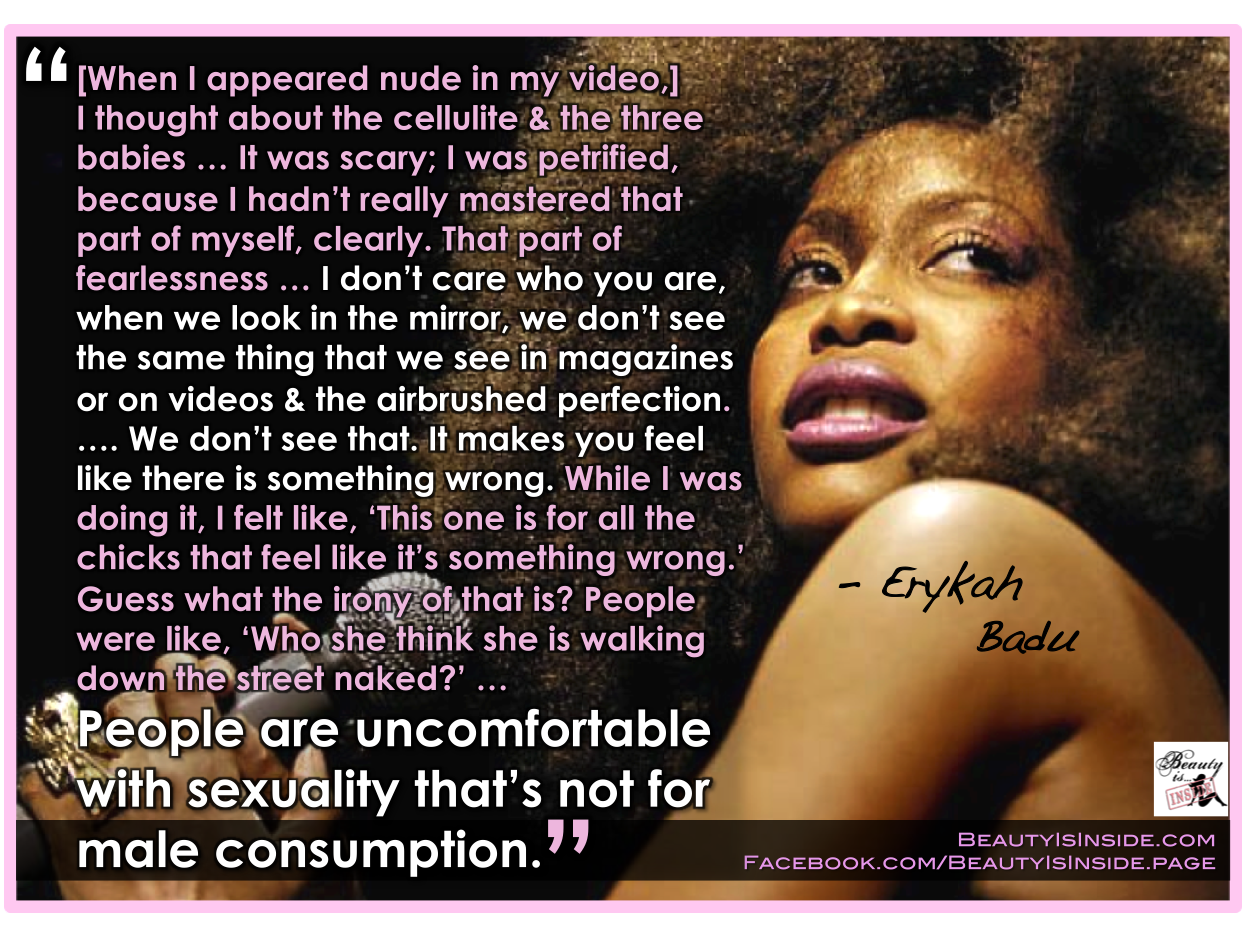
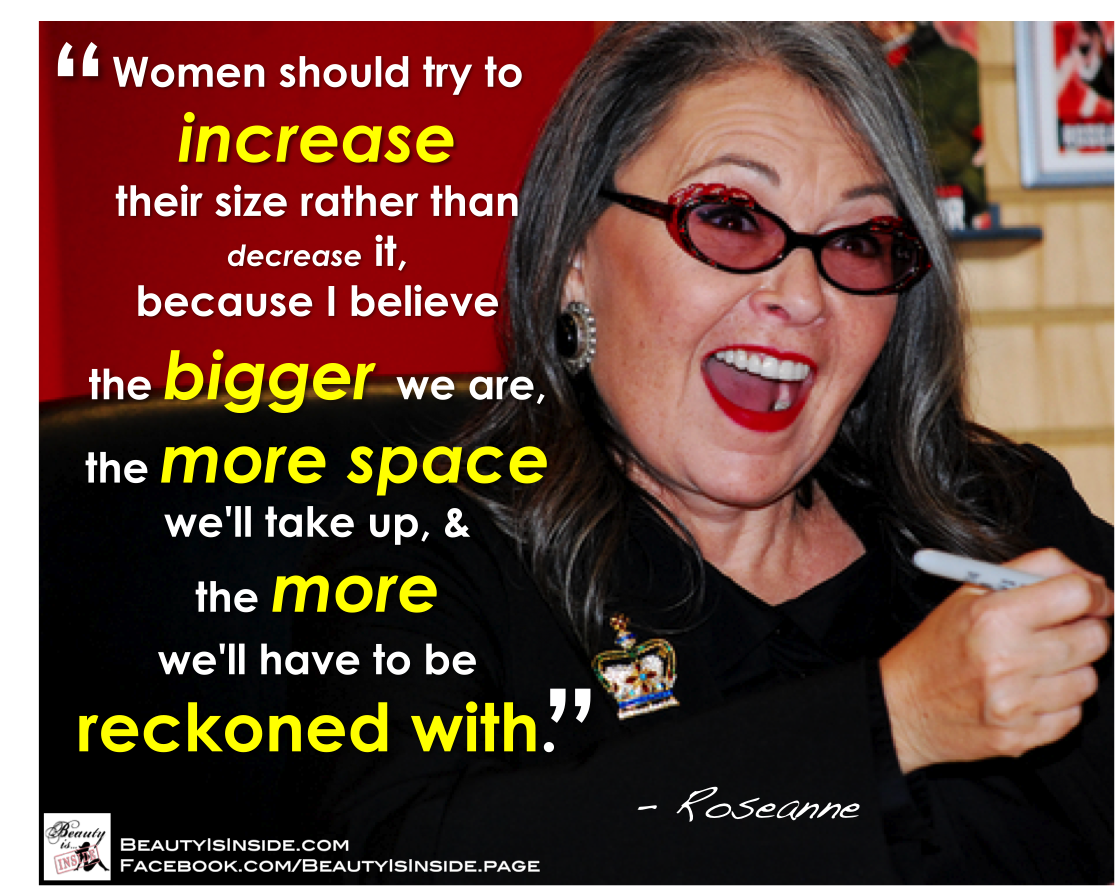
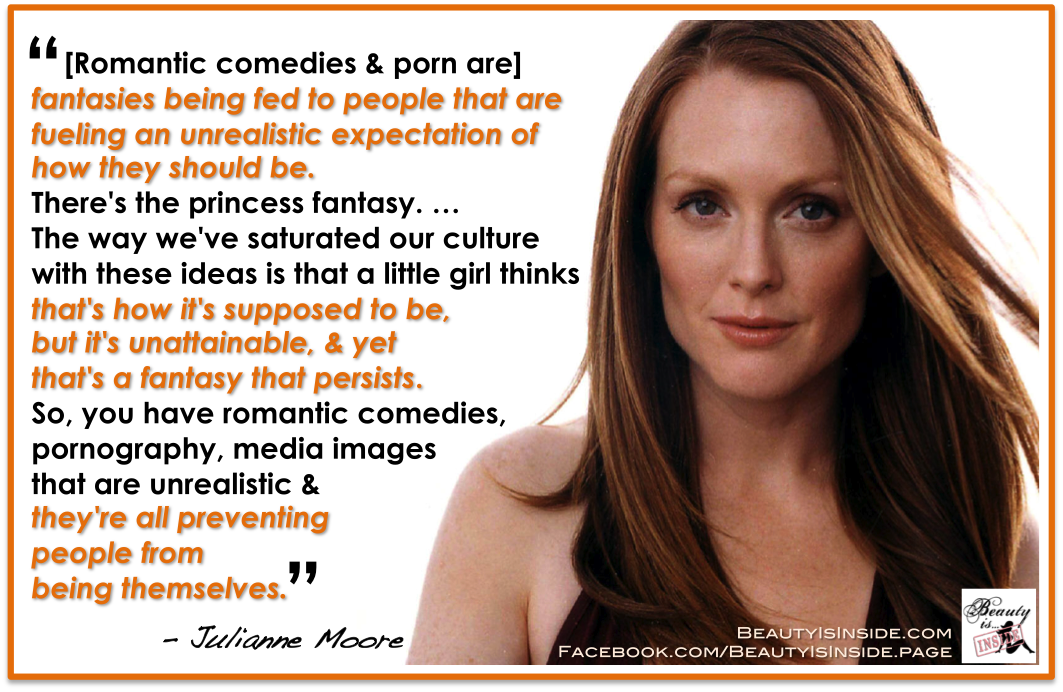
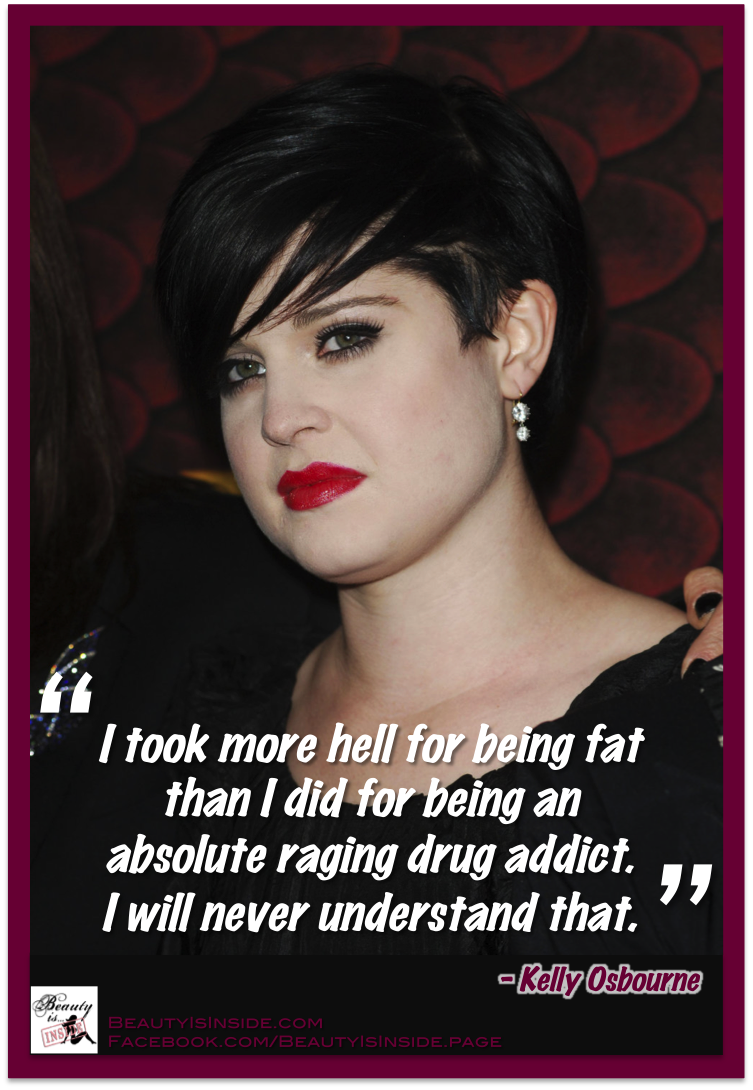

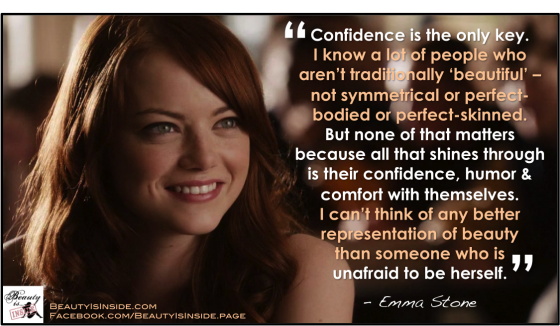
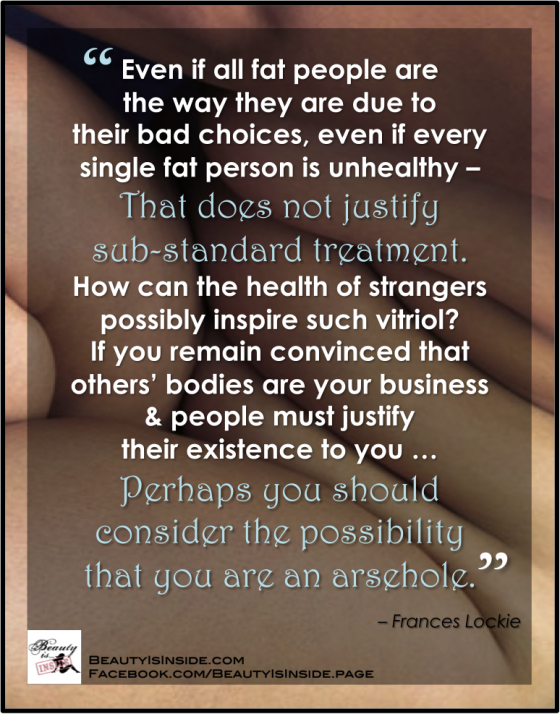
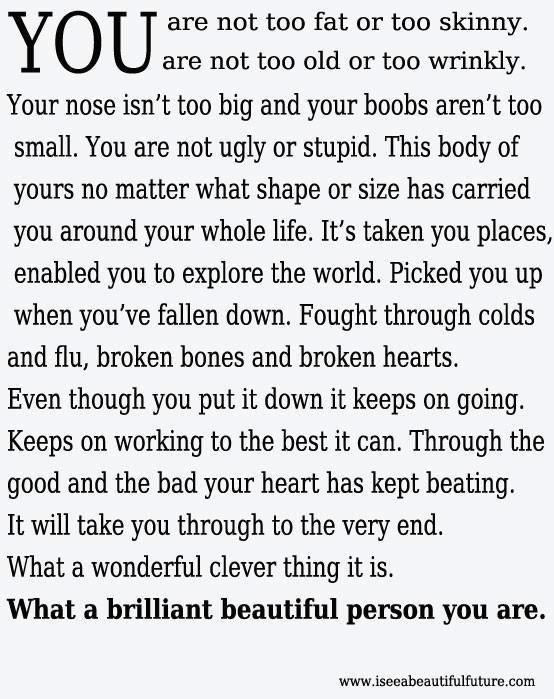
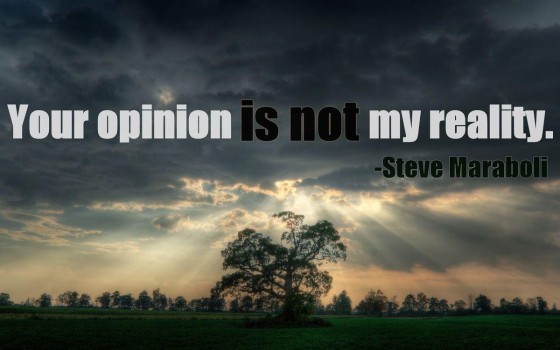
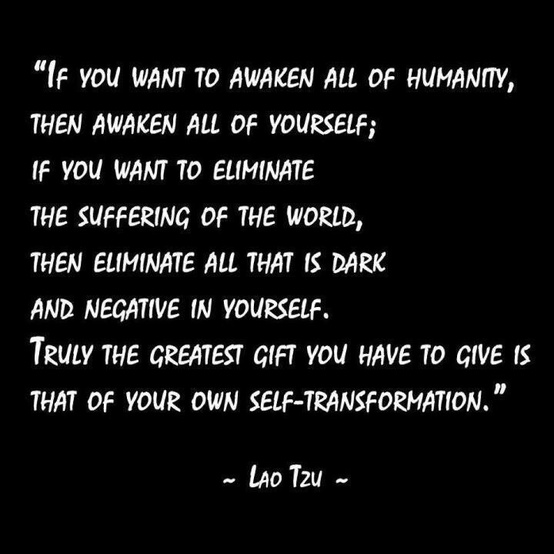
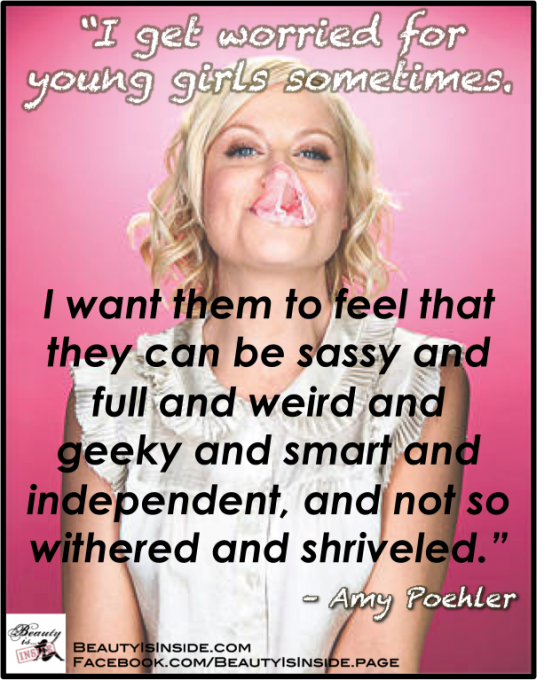
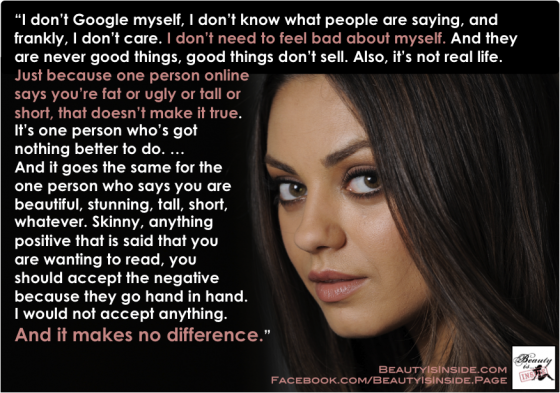

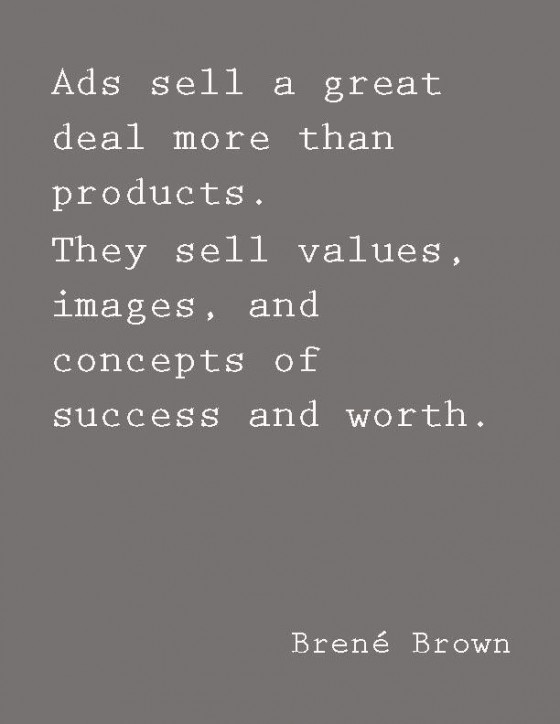
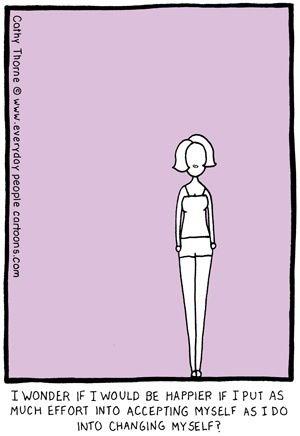

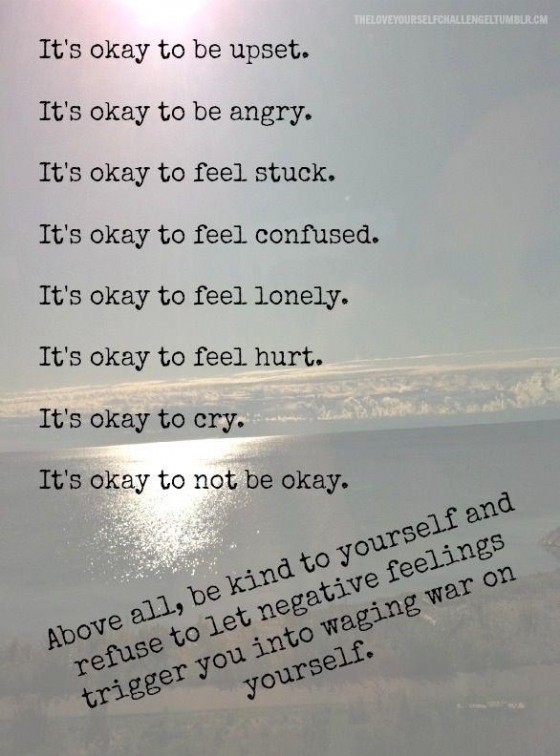
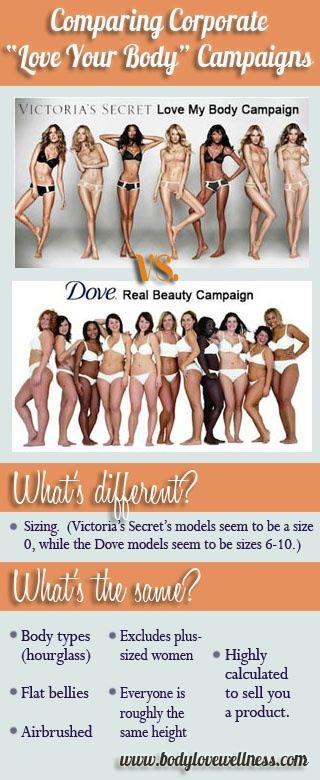 From
From 